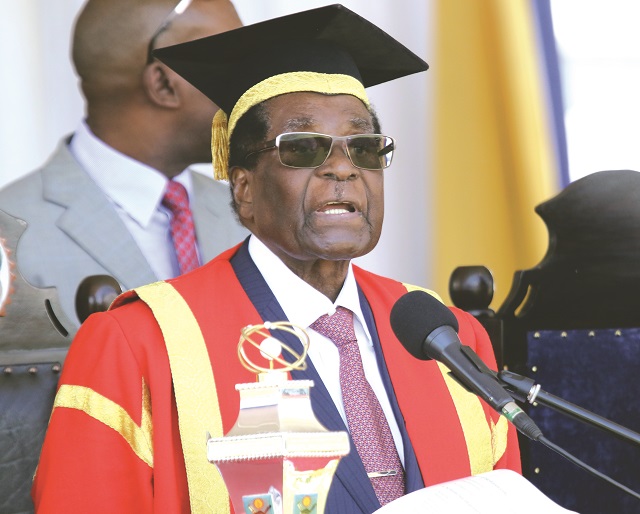
The Sunday News

Robin Muchetu, Senior Reporter
THE National University of Science and Technology in Bulawayo has managed to remain afloat and succeed in achieving goals set in the institution’s 2016-2020 Strategic Plan despite the prevailing economic challenges.
Speaking during the 23rd graduation ceremony on Friday, Nust acting Vice-Chancellor Professor Samson Sibanda said the institution has succeeded on a number of key result areas.
“We have made good strides towards achieving our key result areas as stated in our 2016-2017 Strategic Plan. The first one requires that we widen and deepen access to higher education and we have increased the number of parallel and block release programmes thus affording working individuals a chance to gain university education,” he said.
Prof Sibanda said to aid working individuals, the university has diversified its delivery mode with several modules being offered using various e-learning management systems. The second key result area the university set was to see the generation of knowledge, development of skills and offering solutions through research as well as in identifying and exploiting alternative sources of funding. Another milestone, he said, was that 16 university academic staff have acquired PhDs.
“In terms of human capital development as required by the Zimbabwe Council of Higher Education (ZimCHE), 16 members of staff acquired PhDs in 2017, through the Staff Development Office. Thus bringing the total number of PhD holders to 83 out of an academic establishment of 395,” said Prof Sibanda.
The third key result area was about community entanglement. Prof Sibanda said the Department of Fibre and Polymer Materials Engineering engaged rural communities on issues to do with value addition and beneficiation of their fibrous materials, hides and skins included, to improve the quality of the leather products and hence contributing to improved lifestyles.
The university has covered Gwanda in Matabeleland South, where the first leather co-operative was set up. It is producing school shoes for children and miners in the surrounding areas. The other centre is in Lupane, Matabeleland North Province where members have been trained in cluster formation and hide preservation. Prof Sibanda said there are plans to expand in Lupane.
“In pursuance of carrying out its mission of developing the Lupane leather value chain, the Department of Fibre and Polymer Materials Engineering in partnership with a number of stakeholders intends to establish an abattoir complex in Lupane. A hide processing centre, light industry sub units and a training centre will also be established,” he said.
The fourth key result area was about creating and sustaining an environment that is conducive to effective learning, teaching and productivity.
“Positive efforts have been made by Government to fund salaries, and we are grateful, infrastructural development is at a variance with student and staff members. Apart from the age of the institution bearing in mind that Nust was the first institution that had to clear the bush and to establish a university,” he said.
Owing to the large number of students that are in need of accommodation, the institution is encouraging private developers to engage it and build infrastructure within the campus and where vast land is available.
Five international students also graduated during the ceremony who were studying as part of a collaboration between Nust and Ba Isago University in Botswana through the Faculty of Commerce. Two programmes — Masters of Business Administration Degree in Strategic Management and Masters in Ecotourism and Biodiversity produced their first graduates this year.



